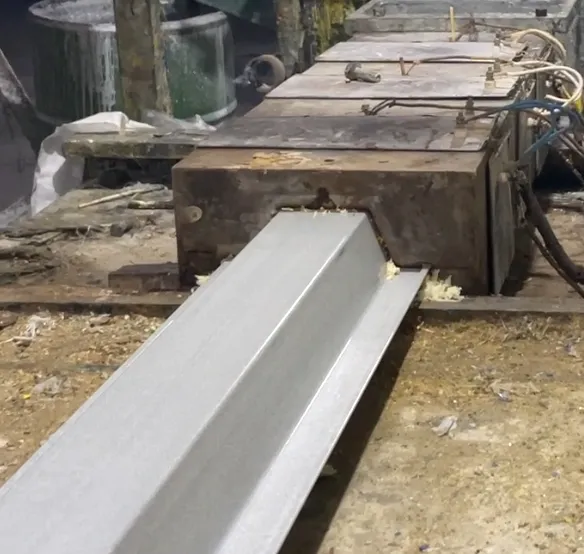loading...
- No. 9, Xingyuan South Street, Dongwaihuan Road, Zaoqiang County, Hengshui, Hebei, China
- admin@zjcomposites.com
- +86 15097380338
- Welcome to visit our website!
Innovative Solutions for Efficient Industrial Water Treatment Systems and Equipment Management
Industrial Water Treatment Equipment Ensuring Sustainable Operations
In today’s industrial landscape, where sustainability and efficiency are paramount, the role of water treatment equipment has become increasingly significant. Industries such as manufacturing, pharmaceuticals, food and beverage, and power generation rely heavily on high-quality water for their processes. As a result, the demand for effective industrial water treatment solutions has surged.
Industrial water treatment equipment is designed to purify, recycle, and manage water resources effectively. This equipment encompasses various processes, including filtration, disinfection, reverse osmosis, and chemical treatment. Each method plays a unique role depending on the type of contaminants present in the water source and the specific requirements of the industry.
Filtration Systems
Filtration is one of the most fundamental processes in water treatment. It involves the removal of solids and particulate matter from water. Industrial filtration systems range from simple sand filters to advanced membrane filtration systems. Uses vary widely, from pretreatment of raw water to ensure other treatment processes operate efficiently, to producing ultra-pure water for semiconductor manufacturing. By efficiently removing contaminants, filtration systems help protect downstream equipment and ensure regulatory compliance.
Reverse Osmosis
Reverse osmosis (RO) is another critical technology in industrial water treatment. This process uses a semi-permeable membrane to remove ions, molecules, and larger particles from water. RO systems are integral in applications requiring high purity water, such as in the pharmaceutical industry, where water must meet stringent quality standards. Moreover, RO systems are increasingly being adopted for wastewater treatment, allowing industries to recover and reuse water, thus minimizing environmental impact and reducing operational costs.
Disinfection Technologies
industrial water treatment equipment

Disinfection is crucial in ensuring the microbial safety of water used in industrial processes. Various disinfection methods are employed, including chlorination, ultraviolet (UV) light, and ozone treatment. Each method has its advantages; for instance, UV disinfection is a chemical-free method that effectively inactivates harmful microorganisms without introducing additional chemicals into the water supply. As industries focus on reducing chemical usage, UV systems have gained popularity due to their efficiency and safety.
Chemical Treatment
Chemical treatment remains a mainstay in industrial water management. It involves the addition of chemicals to achieve desired water quality levels. Coagulation and flocculation are essential processes that help remove suspended solids and organic matter. Additionally, pH adjustment, corrosion control, and scale prevention are critical in protecting infrastructure and maintaining system efficiency. The careful selection and dosing of chemicals ensure that treatment goals are met while minimizing environmental hazards.
The Importance of Monitoring and Control Systems
Advanced monitoring and control systems are also essential components of modern industrial water treatment equipment. These systems utilize sensors and automation technologies to continuously monitor water quality parameters such as pH, turbidity, and dissolved solids. By providing real-time data, these systems enable industries to optimize their treatment processes, respond promptly to water quality fluctuations, and ensure compliance with environmental regulations.
Conclusion
As industries continue to face challenges concerning water scarcity and regulatory pressures, investing in advanced industrial water treatment equipment becomes increasingly critical. It not only ensures compliance with environmental standards but also promotes water conservation through recycling and reuse. With technology advancing rapidly, the future of industrial water treatment looks promising, paving the way for more sustainable practices and responsible water management strategies. In this context, the adoption of efficient water treatment solutions will be a key determinant of the operational success and sustainability of industries in the years to come.
-
The Rise of FRP Profiles: Strong, Lightweight, and Built to LastNewsJul.14,2025
-
SMC Panel Tanks: A Modern Water Storage Solution for All EnvironmentsNewsJul.14,2025
-
GRP Grating: A Modern Solution for Safe and Durable Access SystemsNewsJul.14,2025
-
Galvanized Steel Water Tanks: Durable, Reliable, and Ready for UseNewsJul.14,2025
-
FRP Mini Mesh Grating: The Safer, Smarter Flooring SolutionNewsJul.14,2025
-
Exploring FRP Vessels: Durable Solutions for Modern Fluid HandlingNewsJul.14,2025
-
GRP Structures: The Future of Lightweight, High-Performance EngineeringNewsJun.20,2025
